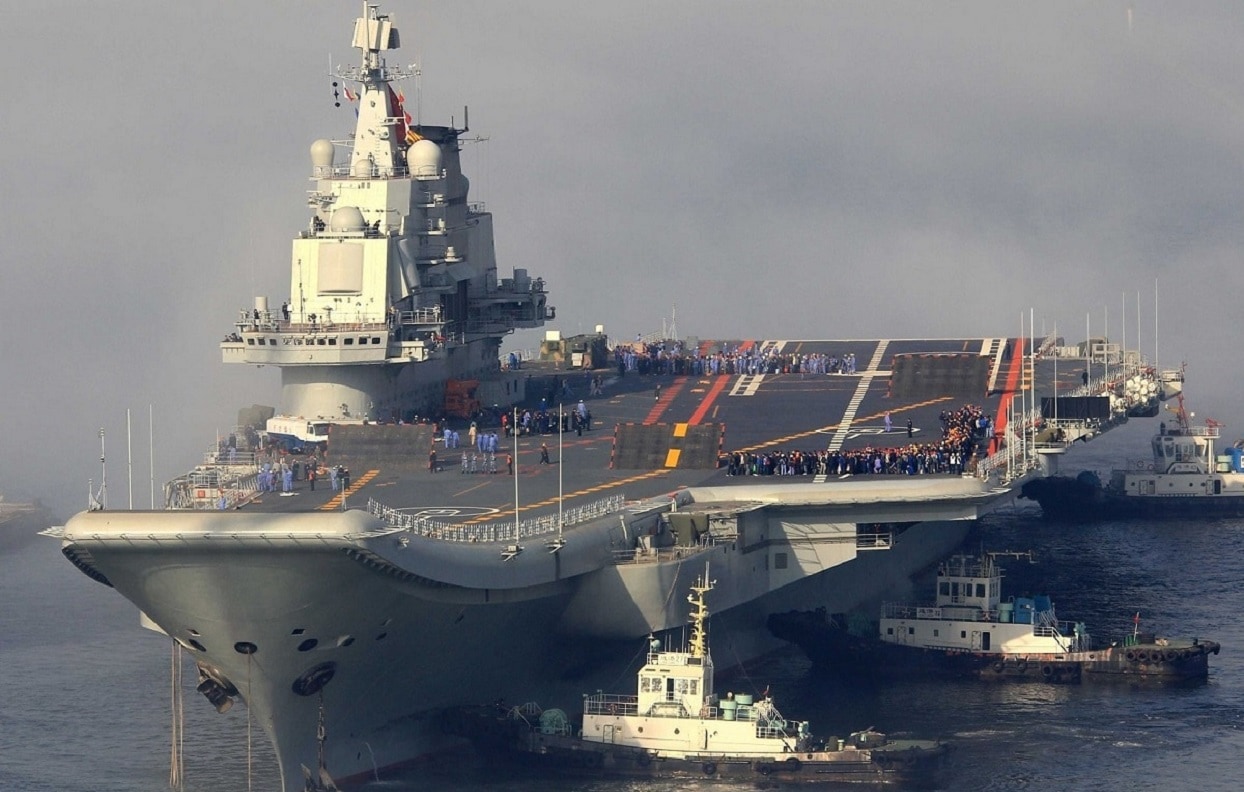Taiwan: In China’s Crosshairs for an Invasion? Since the end of the Second World War, U.S. military doctrine has followed the old Latin adage, “Sī vīs pācem, parā bellum” – translated as, “If you want peace, prepare for war.”
The problem for the United States is one that has been true throughout human history, namely that not everyone preparing for war actually wants peace. In the past 100 years alone, this was seen with the rearmament of Germany under the Nazis, the military buildup of the Empire of Japan, and more recently, Vladimir Putin‘s concentration of Russia’s forces on Ukraine’s border prior to the invasion of that country.
Another Not-so-Peaceful Buildup
Worrisome this week is that the People’s Republic of China conducted military drills in response to U.S. House Speaker Nancy Pelosi’s visit to Taiwan. These drills show no desire for peace. Indeed, they may show China’s earnest preparation for an invasion of Taiwan.
“China has used the drills in its military playbook to prepare for the invasion of Taiwan,” Joseph Wu, Taiwan’s foreign minister, told reporters on Tuesday. “It is conducting large-scale military exercises and missile launches, as well as cyber-attacks, disinformation, and economic coercion, in an attempt to weaken public morale in Taiwan.”
Wu offered no timetable for a possible invasion, but his address to the media came after four days of the largest-ever Chinese exercises near Taiwan. The drills included ballistic missile launches, as well as simulated sea and air attacks in the skies and seas surrounding the self-ruled island.
More drills are likely to begin soon. China’s Eastern Theater Command announced on Monday that it would conduct fresh joint drills focusing on anti-submarine and sea assault operations, CNBC.com reported. These latest drills confirm the fears of some security analysts and diplomats that Beijing seeks to keep up the pressure on Taiwan’s defenses. The Chinese Communist Party views democratic Taiwan as its territory, despite never having controlled it.
Wu said that Taiwan would not be intimidated, even as the drills often breach the unofficial median line down the Taiwan Strait.
Since returning from the Far East, Pelosi has defended her trip. On Monday, Pelosi said during an interview with NBC’s Today show that, “We cannot allow the Chinese government to isolate Taiwan. They’re not going to say who can go to Taiwan.”
Strangling Taiwan
What especially worries some observers is how the military exercises hint that Beijing may not need to actually invade Taiwan. It could instead “strangle” the self-ruled island by cutting it off from the outside world.
The recent People’s Liberation Army (PLA) drills, which officially began last Thursday, focused on six zones and essentially encircled Taiwan. That restricted access into the area for civilian ships and aircraft.
“Connect the six areas in a line, like a noose, with the knot of the noose right in the southwest direction,” Meng Xiangqing, a professor at the PLA National Defense University, said in an interview with state-run broadcaster CCTV.
Meng further explained that the six areas were chosen to show how China could cut off Taiwan’s ports, launch attacks on the island’s most important military installations, and then sever access to any foreign forces that come to Taiwan’s aid.
Despite the pressure, Taiwan has continued to show its vigilance and began its own live-fire military drills in Pingtung County, on the south of the island, on Tuesday. Those exercises, which the Taiwanese military says were previously scheduled, were designed to simulate defensive operations against an attack on the island.
“China’s continued attempt to intimidate Taiwan will not panic us, nor will they defeat us,” said Wu. “The values of freedom and democracy cannot be taken away.”
To that end, Taiwan would be wise to prepare for war, if it truly hopes for peace.
A Senior Editor for 1945, Peter Suciu is a Michigan-based writer who has contributed to more than four dozen magazines, newspapers and websites. He regularly writes about military hardware, firearms history, cybersecurity and international affairs. Peter is also a Contributing Writer for Forbes. You can follow him on Twitter: @PeterSuciu.

